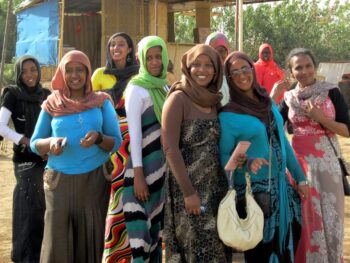
Sweeping reforms to Sudan’s 1991 Penal Code have been passed into law, including the removal of the death penalty for apostasy. Previously, Sudan was one of only 14 countries to impose capital punishment for leaving Islam and was ranked as the ninth worst country in the world for its treatment of the non-religious by Humanists International’s 2019 Freedom of Thought Report. Humanists UK has welcomed this reform as a significant move towards freedom of religion or belief in Sudan, and hopes that this is the first step towards full decriminalisation.
These reforms have also seem a ban on female genital mutilation come into force, a moratorium on the use of public flogging as a punishment, the relaxation of the prohibition on alcohol for non-Muslims, and ending the requirement for women to seek male permission to travel with their children. This followed on from earlier reforms last year that repealed the ‘decency laws’ which had imposed corporal punishment on women for breaches of dress-code.
The apostasy law was regularly used before its repeal, including in the case of Mohammad Salih, who in 2017 faced the death penalty after requesting the religion section on his national ID card be changed from Islam to non-religious. He only avoided it as he was deemed mentally unfit to stand trial. In 2014, Mariam Yahya Ibrahim narrowly avoided the death penalty after she was charged with apostasy for marrying into a Christian family.
However, apostasy and ‘religious insult’ will remain criminal offences in Sudan, so there is more work to be done to see freedom of religion, belief, thought, and expression be upheld.
Humanists UK Director of Public Affairs and Policy Richy Thompson commented, ‘We are delighted that Sudan has taken this bold leap forward towards realising the right to freedom of religion or belief for its citizens, as well as improving the protection of women and removing brutal practices that have no place in the modern world. We hope that this will open a path to further reform in the future to decriminalise apostasy entirely, and for the 13 countries that still impose the death penalty for blasphemy or apostasy to also abolish this practice.’
The 13 countries which maintain the death penalty for blasphemy or apostasy are Afghanistan, Brunei, Iran, Malaysia, Maldives, Mauritania, Nigeria, Pakistan, Qatar, Saudi Arabia, Somalia, United Arab Emirates, and Yemen.
Notes:
For further comment or information, please contact Humanists UK Director of Public Affairs and Policy Richy Thompson richy@humanists.uk or phone 020 3675 0959
Read more about our international campaign work: https://humanists.uk/campaigns/international-campaigns/
Humanists UK is the national charity working on behalf of non-religious people. Powered by over 85,000 members and supporters, we advance free thinking and promote humanism to create a tolerant society where rational thinking and kindness prevail. We provide ceremonies, pastoral care, education, and support services benefitting over a million people every year and our campaigns advance humanist thinking on ethical issues, human rights, and equal treatment for all.
